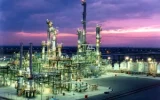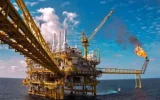
The CEO of the National Petrochemical Company announced the lifting of gas restrictions for petrochemical units and said: "With the announcement of the National Gas Company, most petrochemical complexes will return to full production capacity by the end of this week, and gas extraction will approach the level of about 90 million cubic meters per day, similar to October."

The executor of the Phase 13 development plan of the South Pars Joint Field announced the production of a new well in the project and said: "With the exploitation of this well, daily gas extraction from Phase 13 of South Pars increased by more than 1.5 million cubic meters."

The executor of the South Pars pressure boosting project said: "The implementation of the South Pars pressure boosting project alone is not going to work a miracle for the gas shortage crisis. Along with the implementation of this project, gas fields such as Kish and Bilal, etc., must be developed at the same time, and consumption must also be reduced."

A member of the Energy Commission of the Islamic Consultative Assembly said: "Statistics show that the collection of gases associated with oil in the first year of the 14th government's activity and the implementation of the Seventh Development Plan has been one of the active and successful sectors of the Ministry of Oil."

The Director of Integrated Planning at the National Iranian Oil Company, emphasizing the strategic importance of the Dehloran pressure boosting station in the west of the country, said: "With the operation of this station and before the summer of next year, all the gases that can be collected in the west of the country will be completely returned to the consumption cycle."

The CEO of the National Iranian Gas Company announced: Natural gas storage capacity will double with the implementation of development projects in the Sarajeh and Shurijeh reservoirs.

On February 19, the household, commercial, and small industrial sectors consumed 69.5 percent of the total natural gas delivered to the national grid.

The CEO of the Iranian Gas Transmission Company considered the transfer of 886 million cubic meters of sweet gas on February 17 a new record in the history of the country's nationwide gas network, and said: "Relying on technical measures and the round-the-clock efforts of employees, gas transfer during peak winter consumption has been carried out without interruption and with maximum network capacity."

The CEO of Tehran Province Gas Company said: "Studies indicate that in Tehran Province, about 11 percent of gas is consumed by subscribers, and a total of 551 villages are covered by gas supply."

On February 17, the household, commercial, and small industrial sectors consumed 66 percent of the total natural gas delivered to the national grid.










